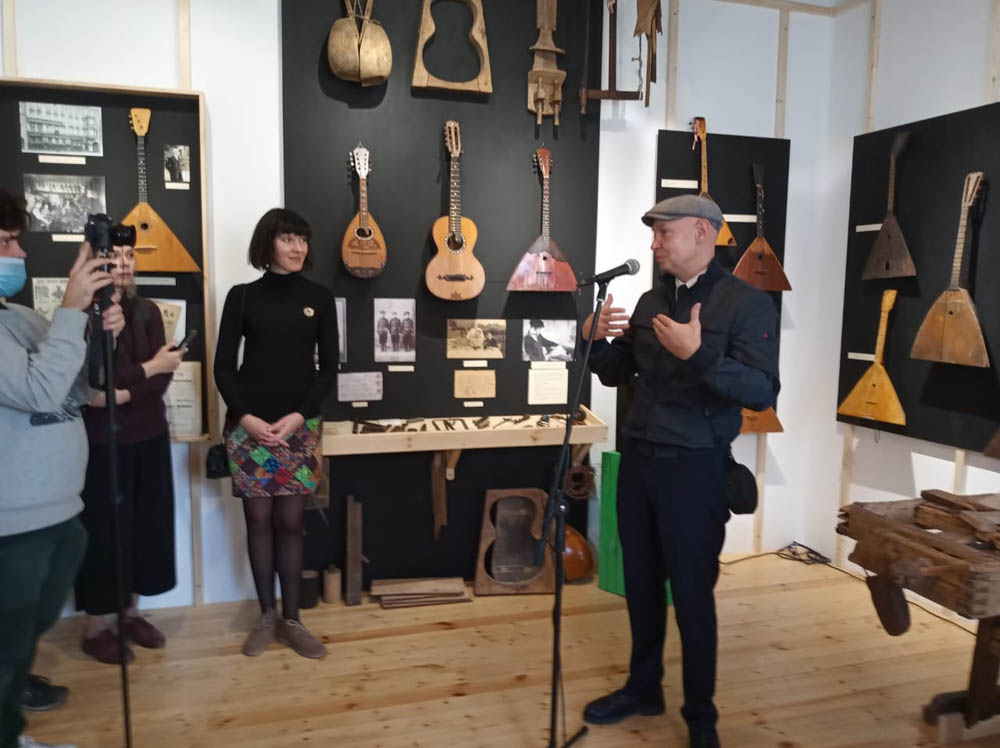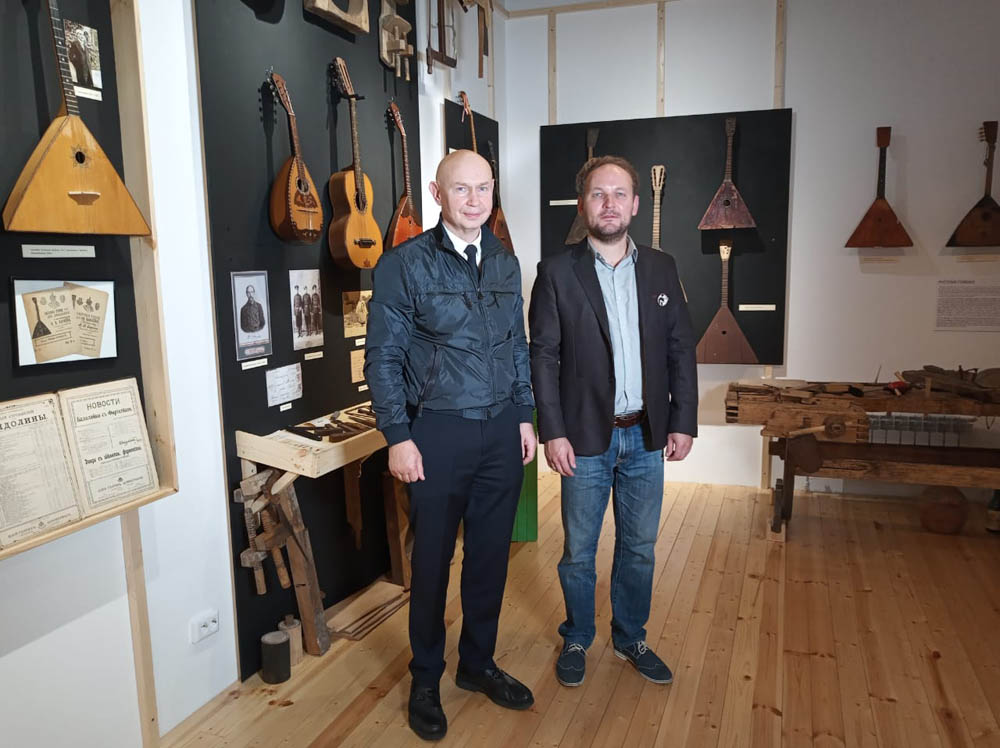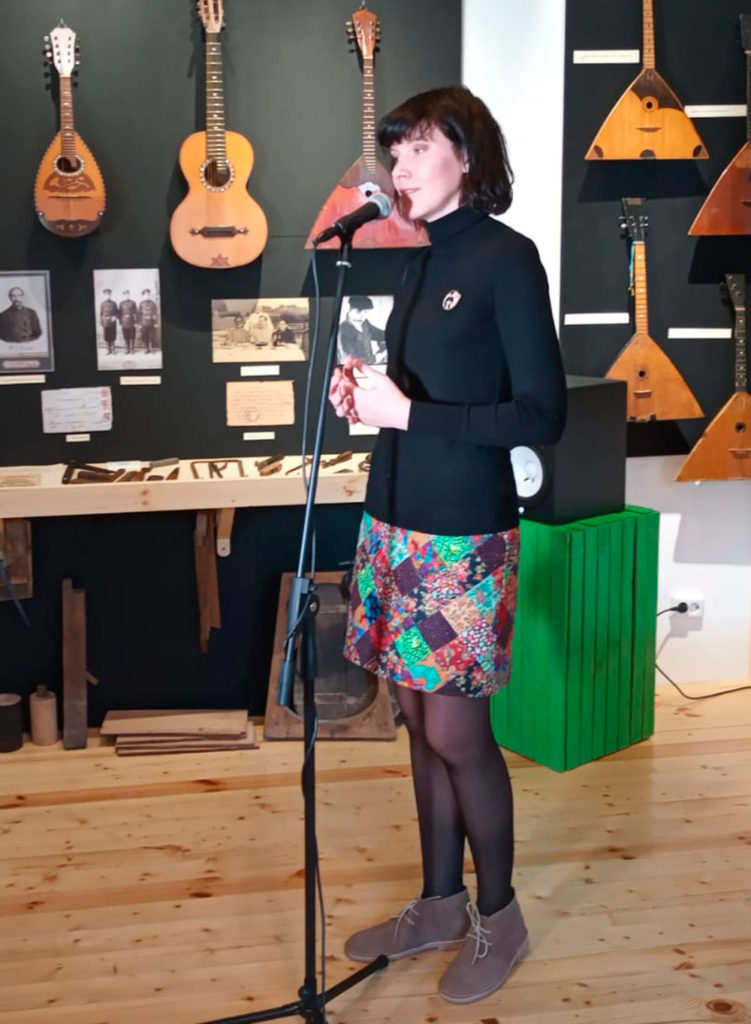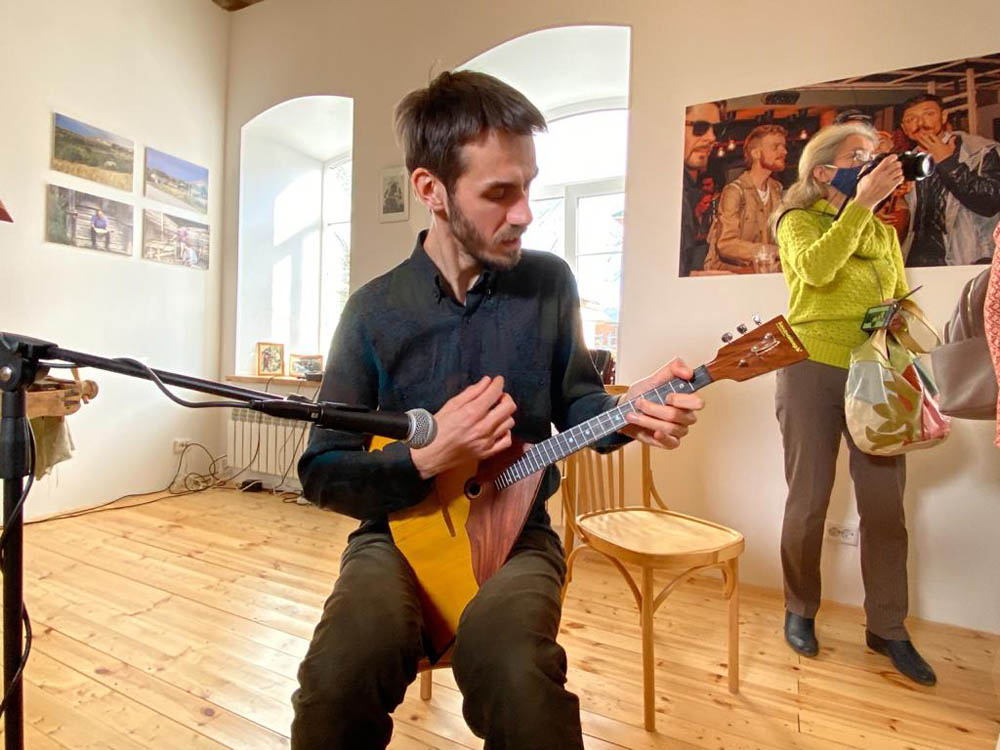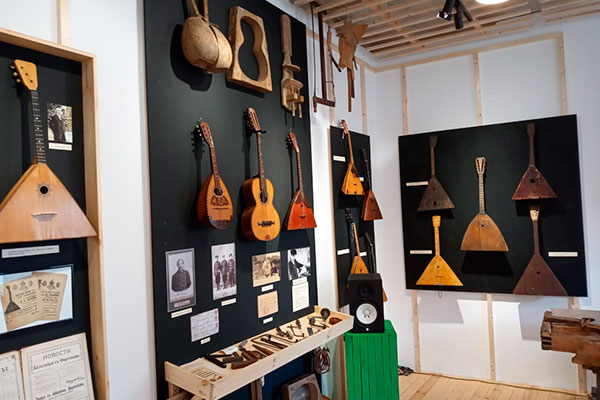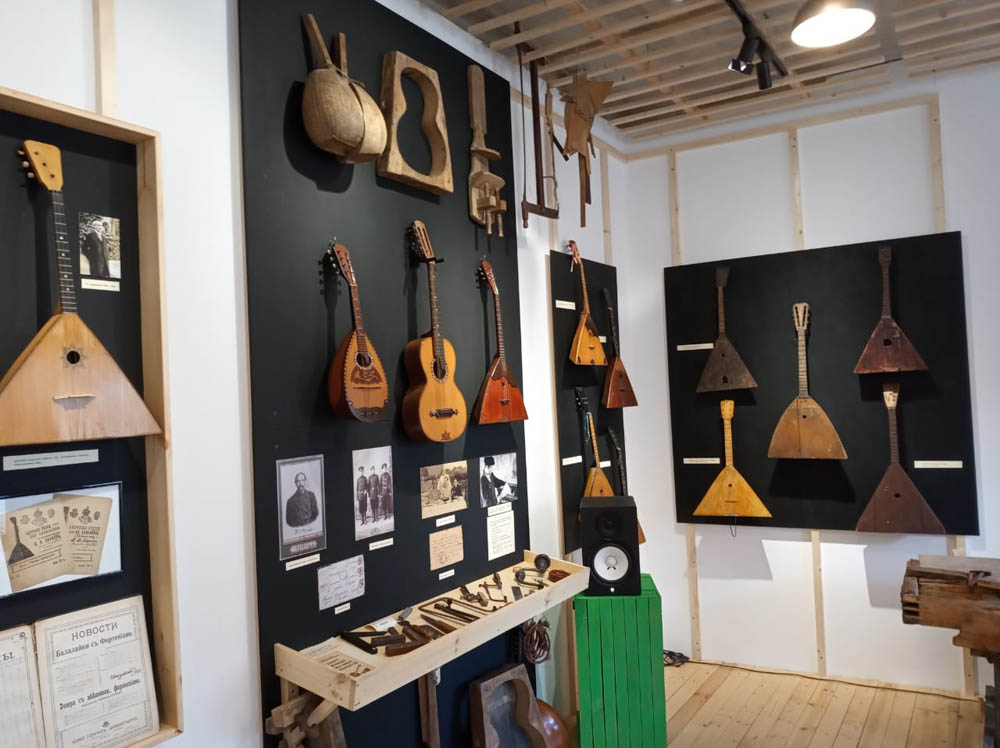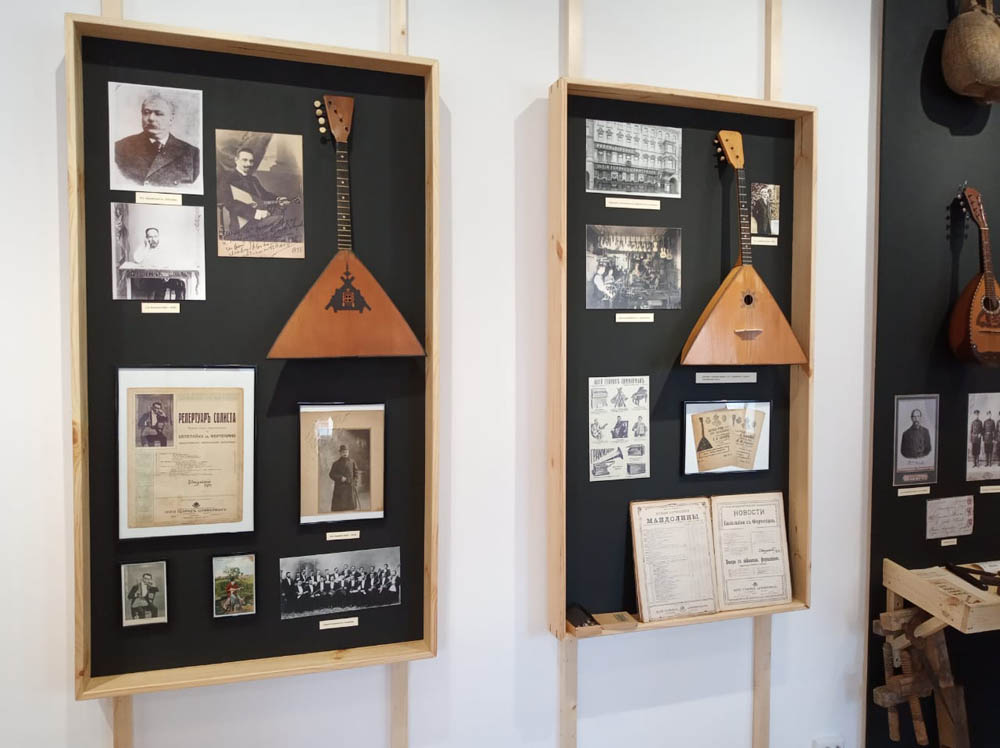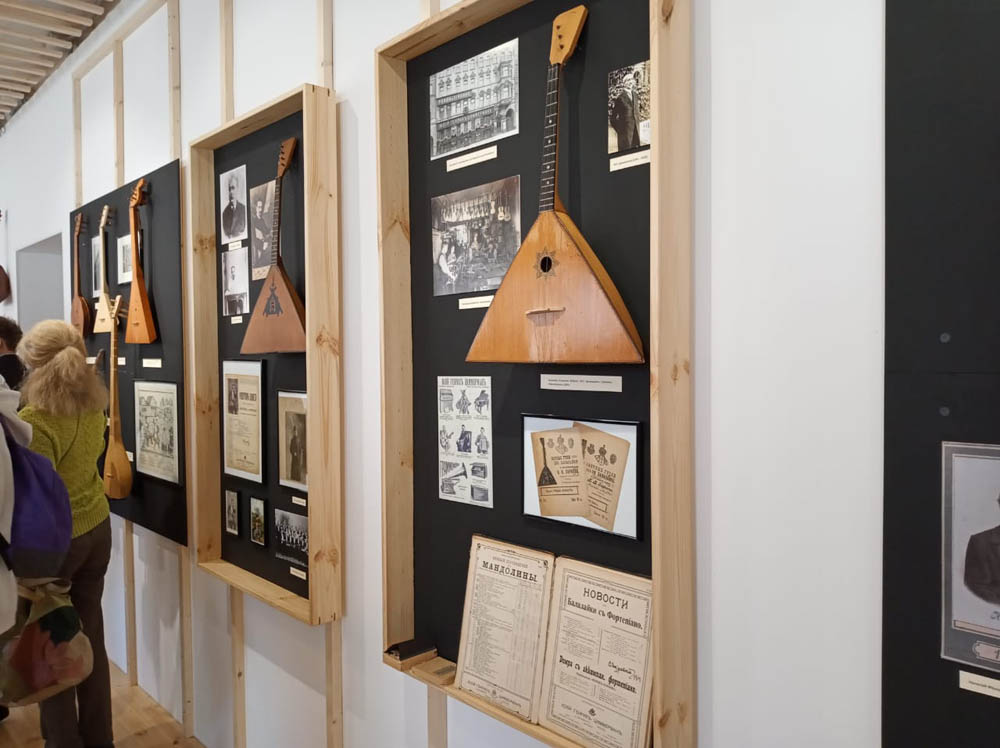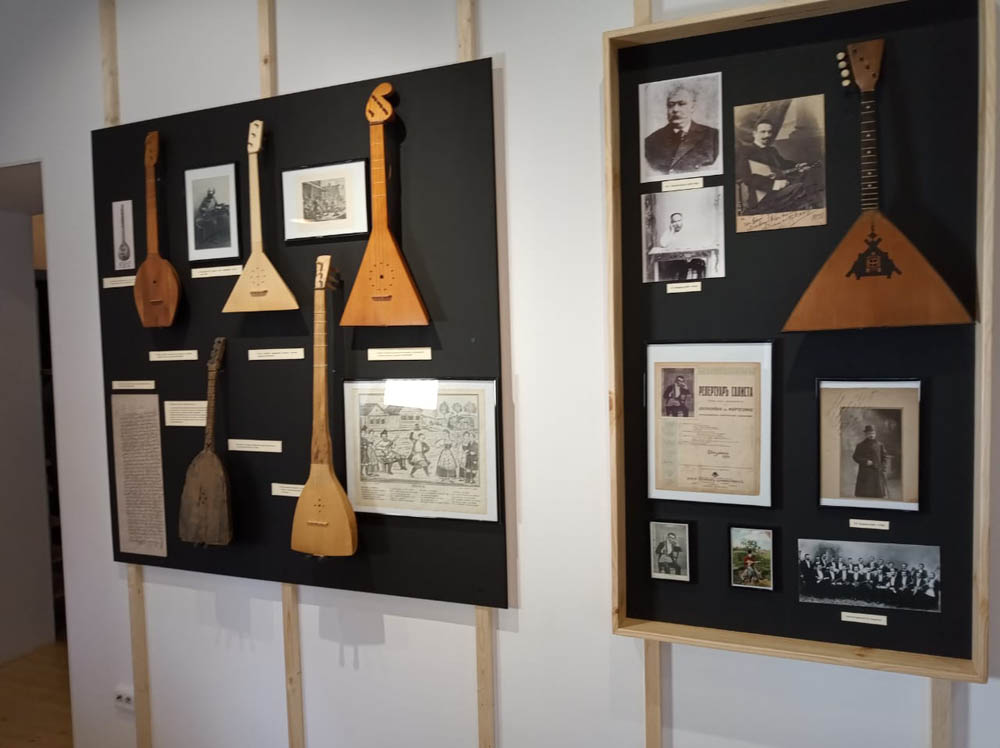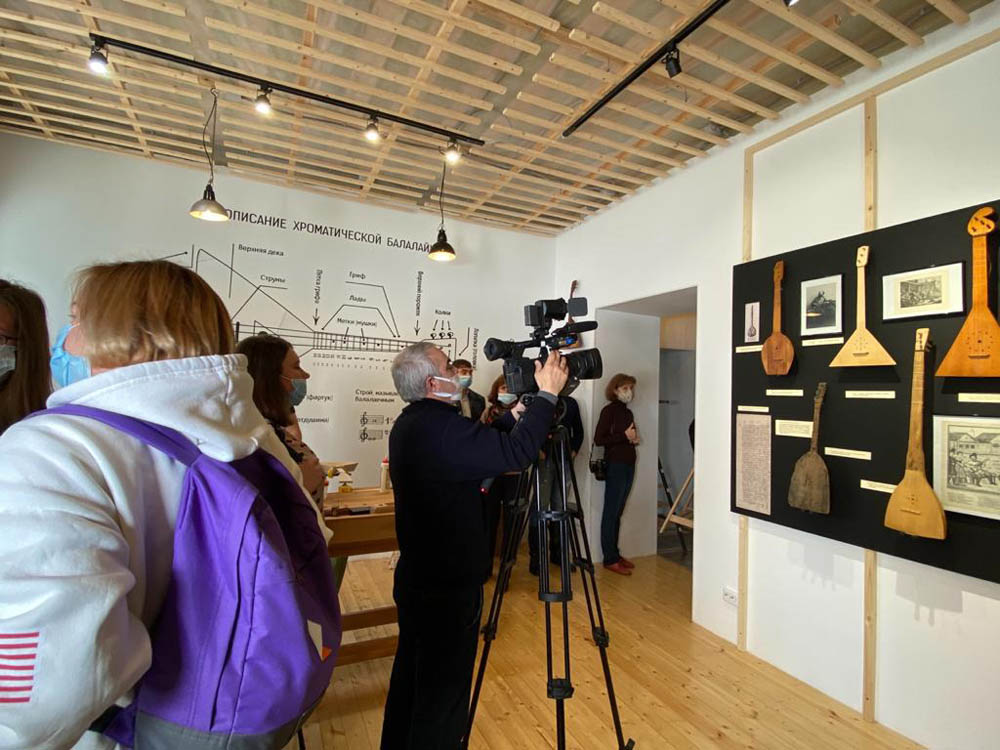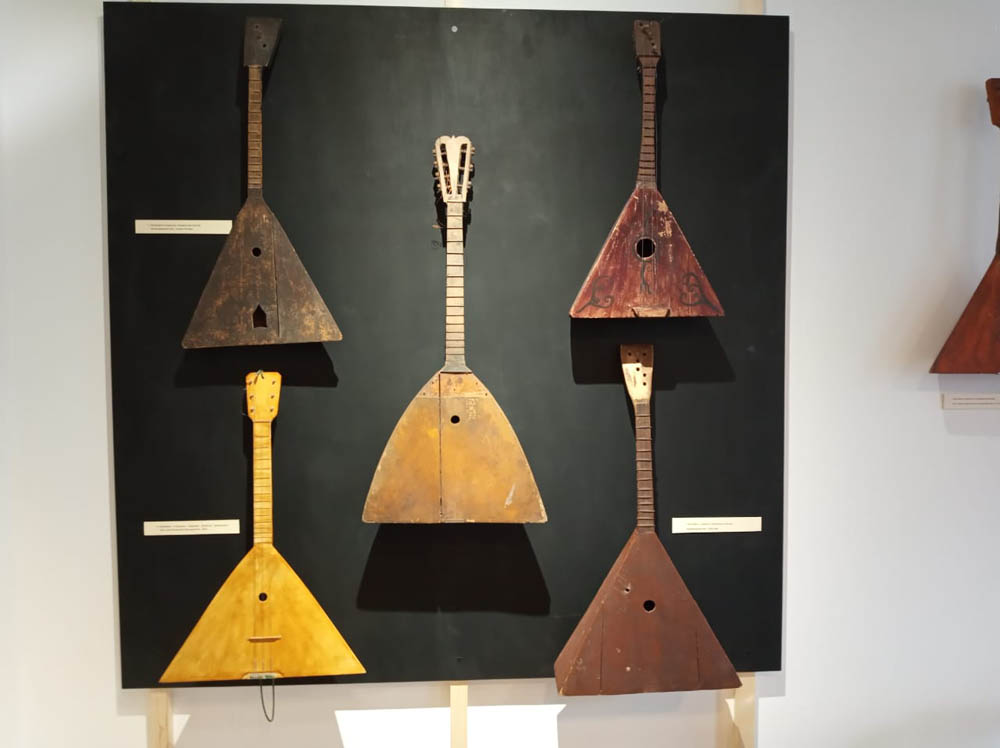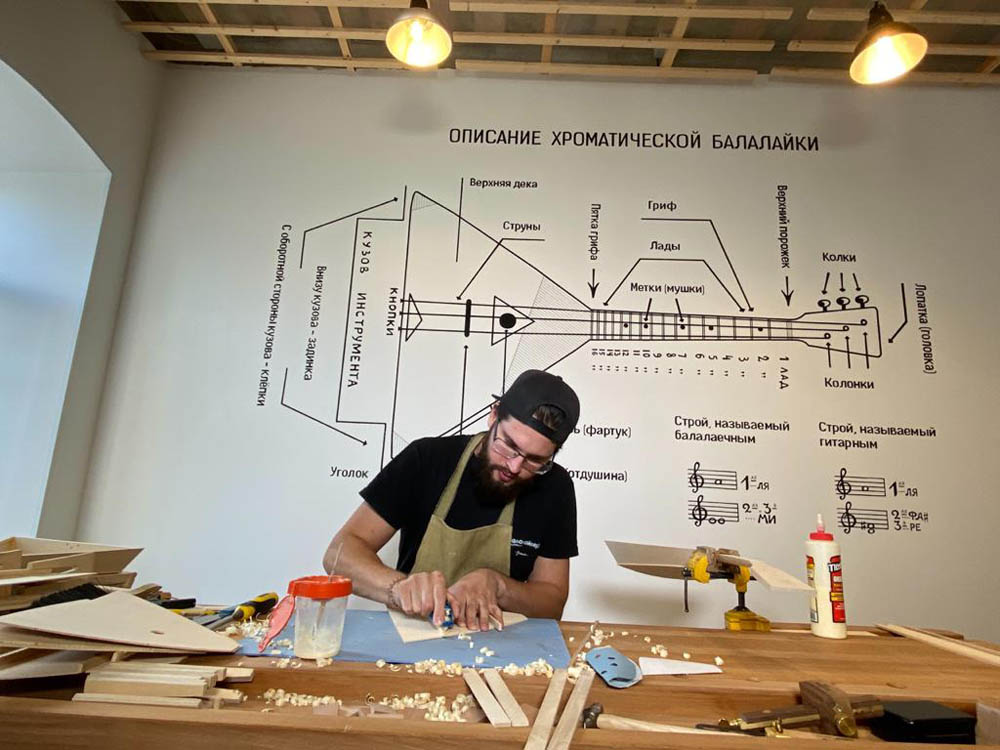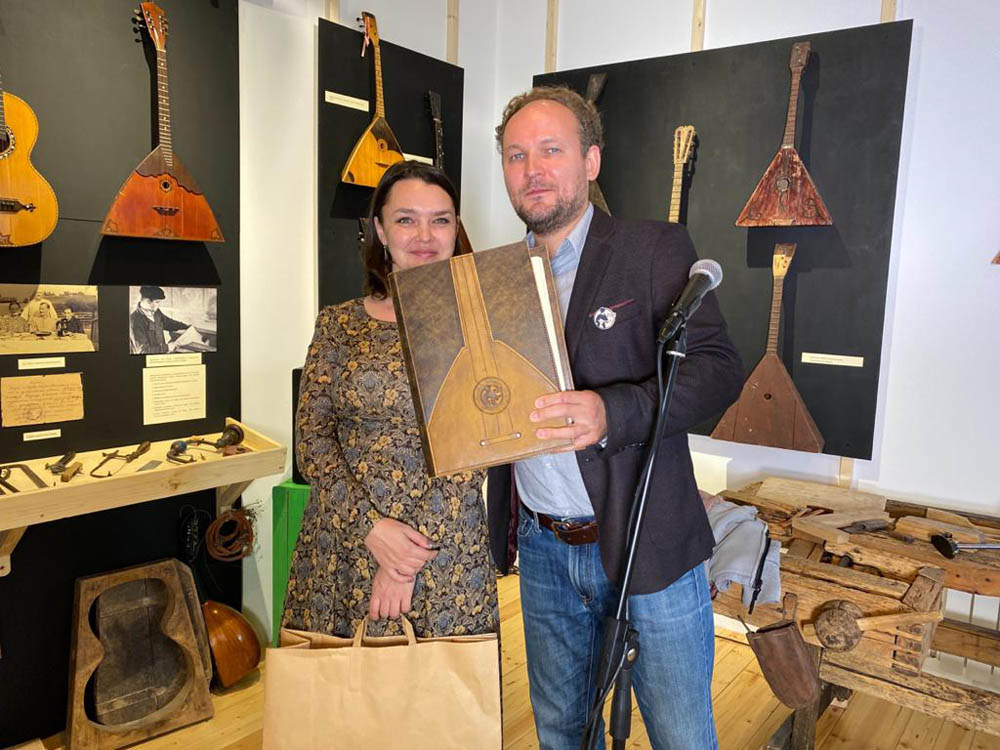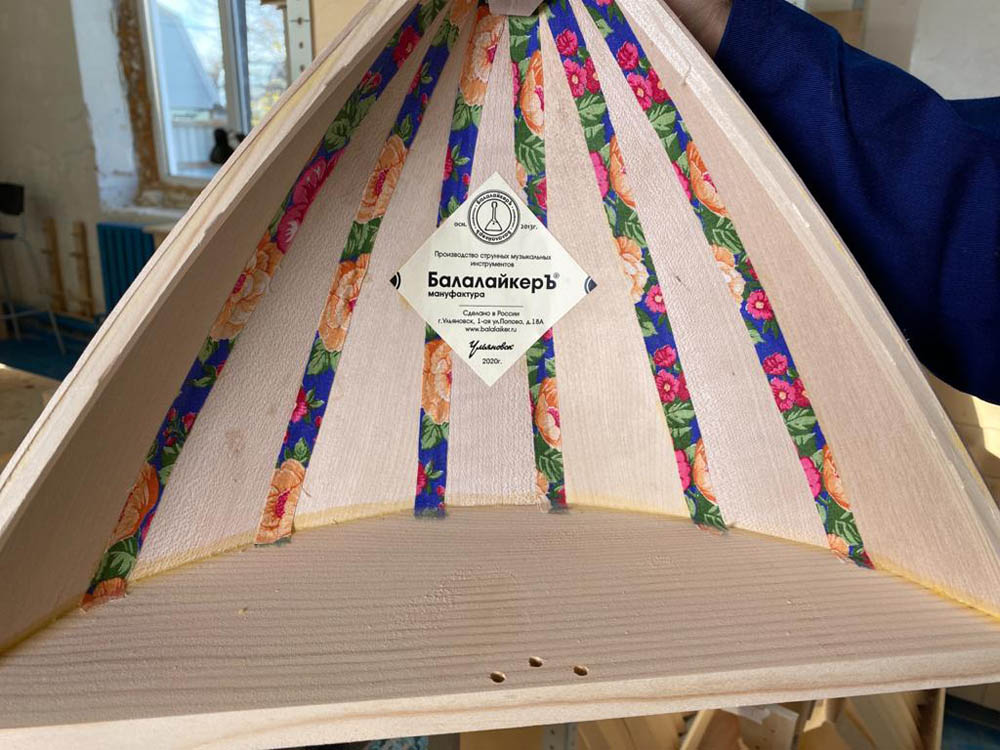On Saturday, the team of the Association of Private Museums of Russia attended the opening ceremony of the Balalaika Museum in Ulyanovsk and visited the balalaika manufacture. The museum has opened in the old city estate of Emelyan Krivoy on Bebel street.
The collection of exhibits presented in the museum although small, is quite unique, it includes some of the rarest musical instruments of different periods, starting from the 19th century. The exhibit shows the historical development of the balalaika industry in Russia and creates an opportunity to study the culture of Russian musical performance.
The collectors Eugeny Kharlamov and Sergey Kliuchnikov first got the idea of establishing a museum to preserve cultural values and folk crafts about ten years ago. Since the early 2000s they’ve been traveling all across Russia exploring musical traditions of the Russian peasantry, bringing back all kinds of musical instruments: ancient, peasant, handmade, cooperative. Later they decided to open a museum, and in 2013 for the first time, all the instruments were presented as a single collection in Quarter, a small creative space of 30 square meters. In an attempt to make the place both cozy and exciting, the show was designed as a tea room and a museum. This small museum didn’t last long and soon changed its format to become a series of traveling exhibitions. This year the collection got a new space, so the decision has been made to reopen the museum.
“Our museum has other musical instruments too, not just the balalaikas. Only a small part of the collection is presented here, the main part is in the storage. We have more than thirty balalaikas and about fifty musical instruments in total, says the museum manager Maria Churbanova.
The most notable exhibit is a workbench, it’s been neglected by the master for almost ten years, and last year finally became a part of the collection.
“Last year we brought the workbench from the village of Russkie Gorenky of the Karsunsky District of Ulyanovsk Region. The balalaika craft was widely spread in the region since the end of the 19th century, I mean not a lonely craftsman making his instruments, but a whole industry of artisanal balalaika production. The instruments were sold at fairs and it was a huge success until the craft started to die out in the early 2000s since elderly craftsmen had no one to pass the skill on”, Maria Churbanova explains.
Evgeny Kharlamov and Sergey Klyuchnikov can be considered not only the founders of the Museum of Balalaika, but also the successors of the industry tradition. Today Balalaiker Manufacture is the brand label of the Ulyanovsk folk musical instrument. It once started as a small balalaika workshop, and today it grew into a whole balalaika enterprise, one of the largest in Russia.
The factory has an entire library with rare scientific literature on musical instruments and their production. It includes the catalogs of musical instruments from the world manufacturers as well as books about folk masters. There is also a newspaper that was presented to the museum by Bob Taylor, one of the founders of an American guitar manufacturing company.
The factory produces classical balalaikas, the ones we are used to, as well as ancient models, manufactured according to to the blueprints from the times of the Tsardom of Russia, when the first Tzars of the Romanov dynasty came to power.
“We believe that this balalaika model goes back to the 17th century, to the Tzardom of Muscovy and the first Romanovs. Its body is twice as short as the neck. This suggests that the instrument has somehow inherited the Eastern code, it has something from the steppe culture, from the people with whom the Russians have a long history of interactions. It means that the instrument was born from a mixture of cultures and traditions. This reminds us of the values embedded in Russian culture that are associated with inter-ethnic communication and deep levels of connection with our neighbors, says Sergey Kliuchnikov, but what hits closest to home with me is an unpleasant story of the world balalaika market. Today it belongs not to Russia, but Romania, Portugal, and Pakistan. The reason is that we, the Russians, often neglect our values.”
Sergey believes that today we need to preserve cultural values and traditions in our country, and the state should pay attention to the Russian brands that permeate the regions.
At the moment, the Association of Private Museums of Russia is making an expedition to the cities of Russia, next stops include the cities of Samara, Penza, and Ryazan. Its goal is to unite the owners of private museums, find new museums, and open up new horizons for cooperation. The expedition is headed by Alexey Shaburov.
